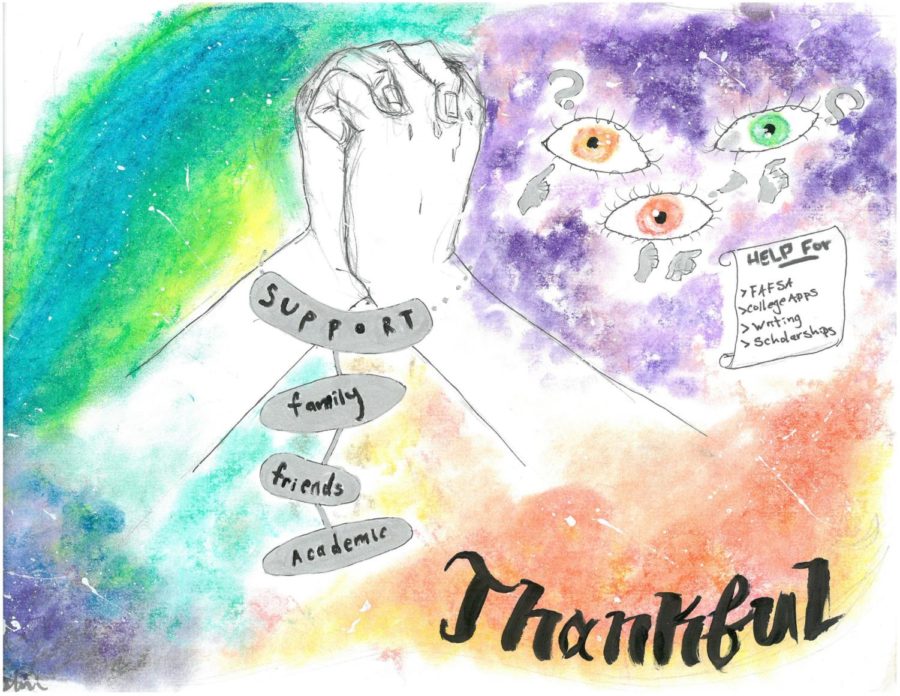Staff Editorial: Celebrate Gratitude Daily
Expressing gratitude daily boasts several appealing benefits to the body and mind
November 20, 2019
Each year on the fourth Thursday of November, millions of Americans gather in gaggles at family and friends’ houses, awaiting the stuffed-full feeling soon to follow a large meal. Loved ones congregate in dining rooms to express thankfulness. Perhaps they bow their heads in prayer, or simply converse about their various blessings around the table, but no matter the method, families across the nation enjoy Thanksgiving Day as a chance to recognize the highlights of life. Unfortunately, when the holiday concludes, the joy disappears. Without an appreciative attitude, people submit to the lackluster laments of everyday routine.
Instead of deeming thankfulness as solely for holidays and special occasions, gratitude should prevail in daily life, for it produces benefits such as healthier bodies, stronger minds and more meaningful relationships.
Several physical health benefits result from daily gratitude. In a Forbes article, mental strength trainer Amy Morin noted that grateful people dealt with fewer instances of soreness or pain.
People who express gratitude also manage personal health better; by exercising more often and scheduling regular check-ups with physicians, they increase their chances of a healthier, longer life.
According to one NPR article, daily gratitude practice additionally aides sleep and lowers the risk of cardiovascular disease.
Similarly, gratefulness influences mental health levels. In one extensive study by psychology professors Joel Wong and Joshua Brown, counseling patients with low initial mental health levels saw a decrease in anxiety and depression after only four weeks of participating in gratitude exercises.
Brown and Wong said, “practicing gratitude on top of receiving psychological counseling carries greater benefits than counseling alone,” in their Greater Good Magazine article.
Aside from physical and mental health benefits, gratitude also promotes stronger and more meaningful relationships. One Time article, for instance, said the benefits of communicating gratitude in all relationships include a heightened feeling of connection and openness.
In addition, an enhanced sense of gratitude shows a correlation with healthy relationships between coworkers and even employee-employer relationships.
Evidently, gratitude practices boast a multitude of benefits to those who choose to adopt them, from reduced risk of pain and depression to a better workplace environment.
Many means of exercising gratitude exist. Psychologist Polly Campbell from Psychology Today suggests using free time to help out someone in need, or using a specific personal skill at least once a day, or simply creating a daily list of things for which to be grateful.
Here on the Satellite staff, we want to express gratitude for the Neenah Joint School District staff, for our readers, for the excellent leadership of Mrs. Plankey, the Satellite adviser, and Ashlyn Jacobs, our Editor-in-Chief.


